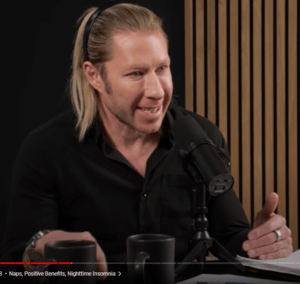This is an analytical note on https://www.youtube.com/watch?v=wD8reCw3Kls
What to Eat & When to Eat for Longevity | Lifespan with Dr. David Sinclair #2
Unlocking Longevity through Diet
Analyzing the profound insights shared by Dr. David Sinclair in the Lifespan Podcast episode titled “What to Eat & When to Eat for Longevity,” it becomes clear that the timing and composition of our meals play a crucial role in promoting longevity and enhancing our overall health. Dr. Sinclair, a renowned Harvard medical school professor and a leader in the field of aging research, alongside co-host Matthew LaPlante, delves into the science behind aging and how we can influence our health trajectory through dietary choices. This blog aims to dissect one of the key points discussed in the episode—intermittent fasting—and explore its scientific underpinnings, offering additional insights into its impact on cellular defense mechanisms against aging.
The Science of Intermittent Fasting
Intermittent fasting, as explained by Dr. Sinclair, isn’t just about reducing caloric intake; it’s a strategic approach to eating that involves alternating periods of eating with periods of fasting. This method is grounded in the science of how our bodies respond to food at a cellular level, particularly how fasting can trigger biological pathways that contribute to longevity. One of the most compelling aspects of intermittent fasting is its ability to activate sirtuins, a family of proteins that Sinclair has extensively researched. Sirtuins play a pivotal role in DNA repair and the maintenance of cellular health, acting as guardians of the cell.
By adopting intermittent fasting, individuals can induce a state of low energy in the body, akin to what is experienced during calorie restriction without the need to significantly alter one’s total caloric intake. This state prompts the activation of sirtuins, alongside other longevity pathways such as AMPK and mTOR, which collectively work to enhance cellular resilience, improve metabolic health, and potentially extend lifespan. Moreover, intermittent fasting has been shown to improve insulin sensitivity, reduce inflammation, and promote autophagy, a cellular “cleanup” process that removes damaged components and helps to maintain cellular function.
The Biological Benefits of Fasting
Diving deeper into the science, intermittent fasting influences the levels of NAD+ (nicotinamide adenine dinucleotide), a critical coenzyme in cellular energy metabolism. Fasting states lead to an increase in NAD+ levels, further fueling the activity of sirtuins and bolstering the body’s defense mechanisms against aging. The implications of this are vast, suggesting that by merely adjusting the timing of our meals, we can profoundly impact our health and longevity.
A Personalized Approach to Longevity
Given the potent effects of intermittent fasting on health and aging, it becomes evident that this dietary approach is not just another trend but a scientifically backed method to enhance our well-being. It’s important to note, however, that intermittent fasting is not a one-size-fits-all solution and should be tailored to individual health needs and lifestyles. Consulting with healthcare professionals before making significant changes to one’s diet is advisable.
In conclusion, the conversation between Dr. David Sinclair and Matthew LaPlante on the Lifespan Podcast illuminates the profound impact of dietary choices on our health and longevity. By incorporating intermittent fasting into our lives, we harness the power of cellular defense mechanisms against aging, offering a promising path to a healthier, longer life. This deep dive into the biology of aging not only broadens our understanding but also empowers us to take actionable steps towards optimizing our health.






